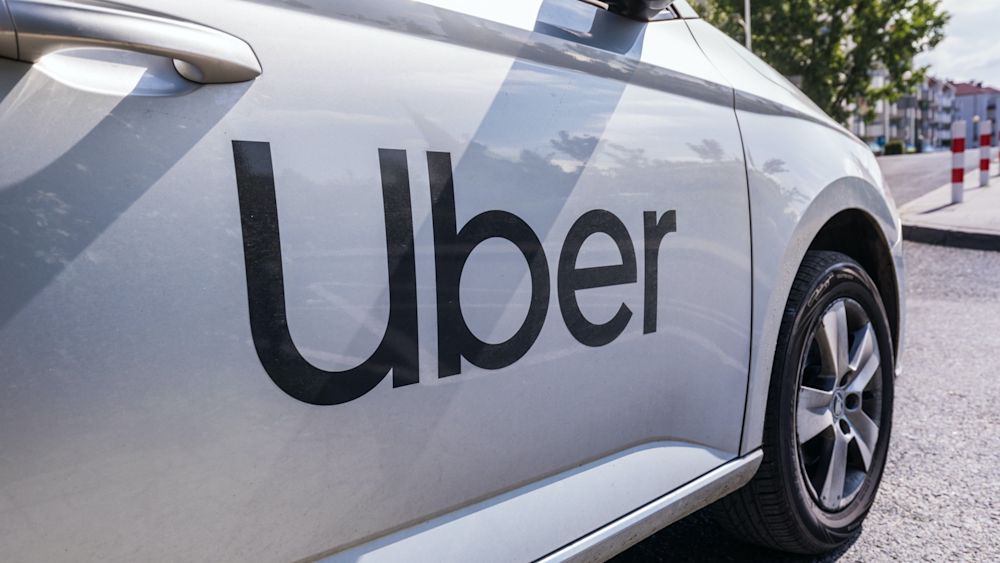Table of contents
Discover some of the biggest buyouts Uber has made as it looks to build out its super app.

Uber has become synonymous with on-demand car services, but its ambitions haven't stopped there.
Founded in 2009, the tech giant is the brainchild of computer programmer Garrett Camp and serial entrepreneur Travis Kalanick. The company was initially called UberCab and later launched its private limo service in San Francisco in 2010 before spreading to New York, Chicago and Paris in 2011.
It wasn't until 2013 truly hit its stride, as the company added its revolutionary ridesharing function, allowing drivers to use their personal vehicles — not just black cars — as part of its core on-demand transportation service.
Just one year later, Uber launched UberFresh—later rebranded to UberEats—as its food delivery service. That was just the first significant business the company branched into, but it wouldn't be the last. Now it also operates a freight matching service, called Uber Freight, and a healthcare transport and delivery business, known as Uber Health.
Uber's various business units have helped it inch its way toward profitability—it achieved its first operating profit in Q3 2021. But Uber's approach to building up its business deviates from some of its rivals and has relied heavily on acquisitions.
Keep on reading to discover some of the biggest buyouts Uber has made as it looks to build out its super app.
Drizly
Uber Eats but for booze. That's the core idea behind Drizly. The alcohol delivery startup was founded in 2012 and exploded in 2020 following the outbreak of the COVID-19 pandemic. Led by co-founder and CEO Cory Rellas, Drizly had grown more than 300% in the year before the $1.1 billion deal. Uber's Drizly acquisition gave the company access to a larger pool of customers already engaging in at-home alcohol delivery, a feature that Uber itself was trying to get off the ground at the time. Since the acquisition, Uber has fractured Drizly's marketplace within the UberEats app while also maintaining Drizly's standalone app and website.
Postmates
Uber's acquisition of Postmates made headlines in the summer of 2020 and merged two of the biggest names in the food delivery space. The $2.65 billion all-stock deal was completed in December 2020 and gave Uber an expanded market share and a more extensive portfolio of participating merchants as it looked to grow its booming delivery business further. Since joining forces, both Postmates and Uber's apps have continued to run separately; however, on the back-end they are now supported by the same merchant and delivery network.
Serve Robotics
Uber officially spun Serve Robotics into a standalone company in March 2021. The startup, which started its life as Postmates' robotics division, specializes in automated delivery solutions like its stroller-sized delivery drone that cruises down the sidewalk to deliver food to customers. In December 2021, Serve announced that it had raised a $13 million seed round to support its growth. At the time, Serve CEO Ali Kashani said that in 2022 the venture would expand its network of delivery partners beyond Uber Eats and Postmates customers —Delivery Hero-backed DX Ventures and 7-Eleven both invested in Serve's seed round— and increase the number of LA neighborhoods in which its robots operate in.
Cornershop
In June 2021, news broke that Uber had decided to buy complete control of Latin American grocery delivery platform Cornershop—it had originally purchased a 53% stake in the Chilean venture less than a year earlier. Founded in 2015, Uber's original ownership of Cornershop had provided Uber with the grocery-specific technology to help expand the utility of Uber Eats. In addition, by buying Cornershop outright, Uber was able to beef up its existing grocery delivery infrastructure at a time when demand for the service was booming and competition was becoming increasingly fierce.
Transplace
Transplace was officially bought by Uber Freight in November 2021. The $2.25 billion deal for the logistics technology platform led by CEO Frank McGuigan created the world's largest network of digitally-enabled carriers with a combined reach of 135,000 carriers in the U.S. and Europe. The combination showcased Uber's strategy to invest in its non-core business segments to protect itself from shocks to its central ride-hailing unit and boost its profitability.
Car Next Door
Uber shelled out an undisclosed sum in January 2022 to buy Australian peer-to-peer car-sharing platform Car Next Door. After the deal closes, the 10-year-old startup will report into Uber's Australian unit and but will otherwise operate independently. The addition to Uber's portfolio of subsidiaries builds on its continued efforts to grow its mobility offerings, which range from on-demand taxi services to public transit. The acquisition will also likely bolster Uber's feature that allows users to book rental cars from Hertz and Avis, which debuted in April 2021.
Careem
In 2019 Uber confirmed the acquisition of its Middle East rival, Careem. The Dubai-based ride-hailing, delivery and payment app is now a wholly-owned subsidiary of Uber, but its brand and app continue to operate separately. The move expanded Uber's international presence and gave it a foothold in the Middle East without expending resources on adapting its services to local customs and regulations.
Get in front of millions of visitors and job seekers.
- Showcase your company culture to a vast community of professionals
- Host your team on a free org chart to keep employees aligned
- Post jobs on our free job platform for high growth startups
In this article


The ORG helps
you hire great
candidates
Free to use – try today